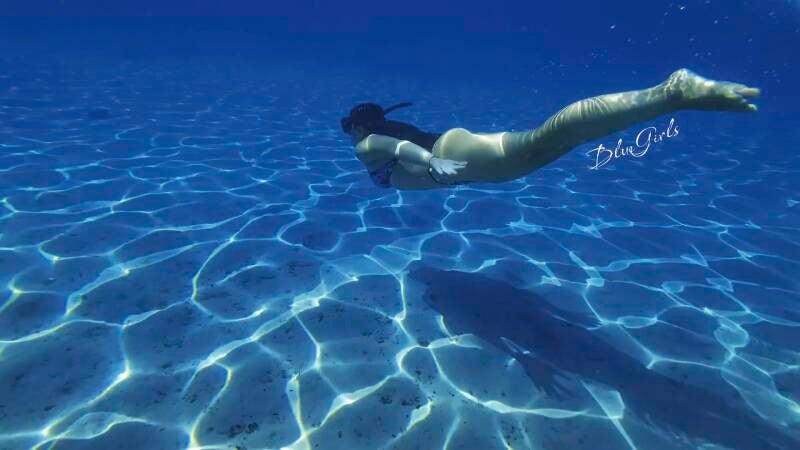Freediving's History
Apnea was the first form of human immersion. It was the only way that humans had to explore the underwater world, a world as beautiful as it is undiscovered. Over centuries, immersion techniques have changed and evolved, becoming a sport, a job, and a passion for many.
Today, apnea consists of different disciplines. It can be practiced in the sea or in a pool, with or without equipment, diving deeply or swimming horizontally.
Despite being considered by many to be an extreme sport, this discipline is actually viable at all levels, both amateur and professional. The level of danger depends on the depth or duration you aim to reach. With due precautions, training and information it is within everyone's reach.
Additionally, this sport offers significant benefits to all who practice it. Various studies have shown that apnea can reduce stress, increase personal productivity, and help develop self-control by perfectly connecting mind and body. Water, in fact, helps to relax the body and lower blood pressure by causing the heart rate to slow, which promotes circulation and gives a sense of calm.
However, like any other sport, apnea has its rules to ensure the safety of free divers. One of these is the "buddy system"; a free diver must always be accompanied by someone who can assist in case of necessity. Another, more difficult rule to follow, is the recognition of one's limitations. It is fundamental for a diver to understand when it is time to say stop. Apnea is a beautiful sport that can provide great satisfaction, but it also teaches patience, how to set goals, and achieve them in the right timeframe.
Competitive apnea is currently managed and regulated by two major international organizations: AIDA (International Association for Development of Apnea) and CMAS (Confédération Mondiale des Activités Subaquatiques – World Underwater Federation). CMAS is the only association officially recognized by the International Olympic Committee.
In the end, apnea is an extremely diverse sport that offers numerous physical and mental benefits. But we must not forget the most important thing: this discipline allows us to visit a fascinating world filled with an incredible variety of creatures. In that world, you can't stay for long, but with apnea, you have the chance, even if just for a moment, to feel that you are a part of it.


